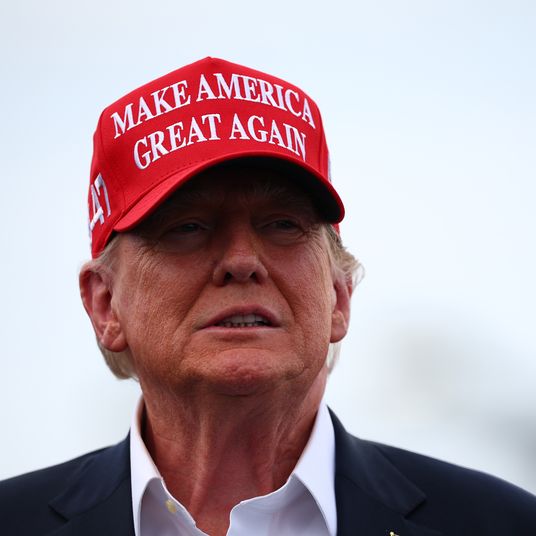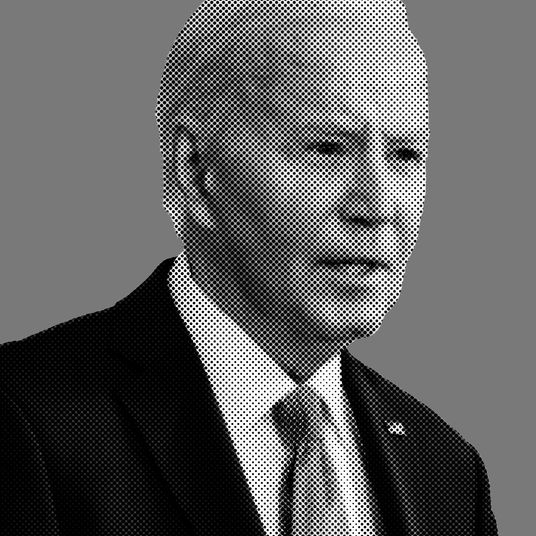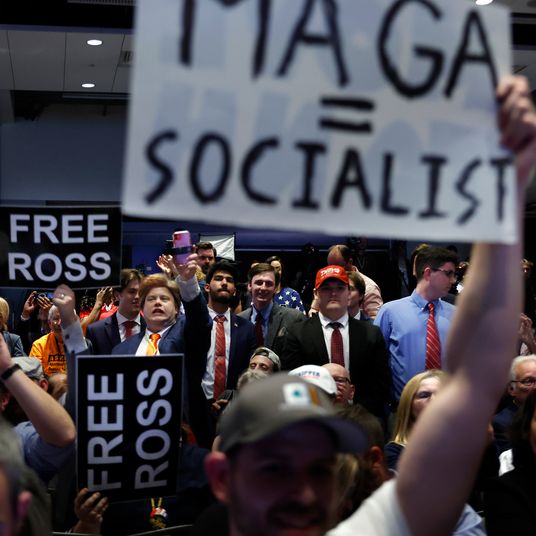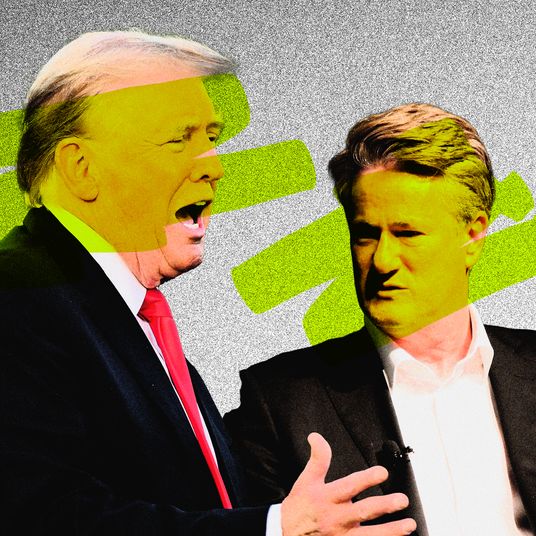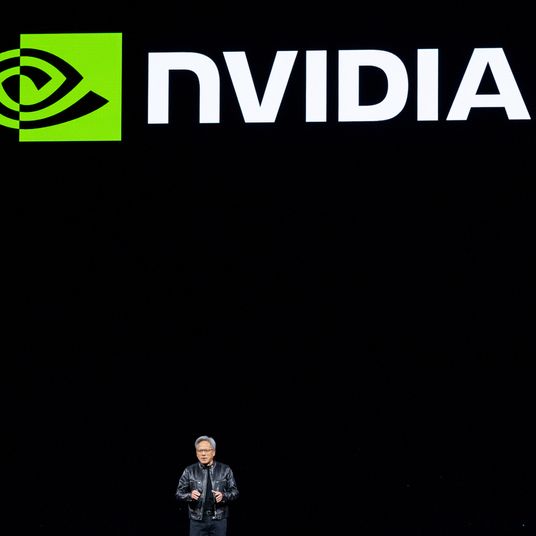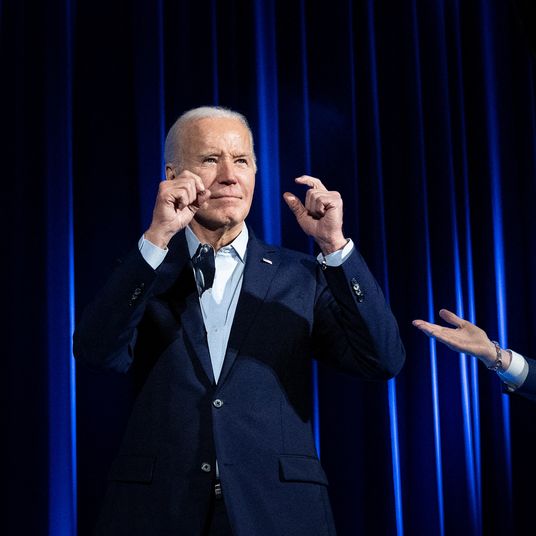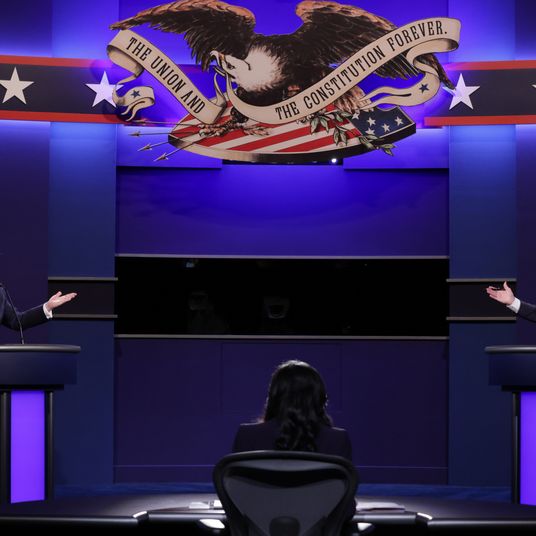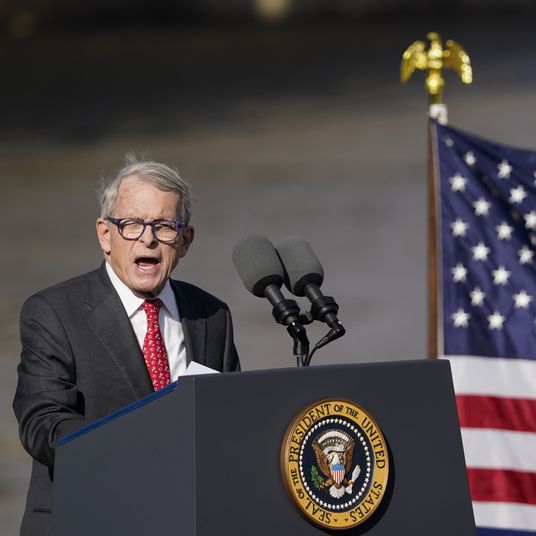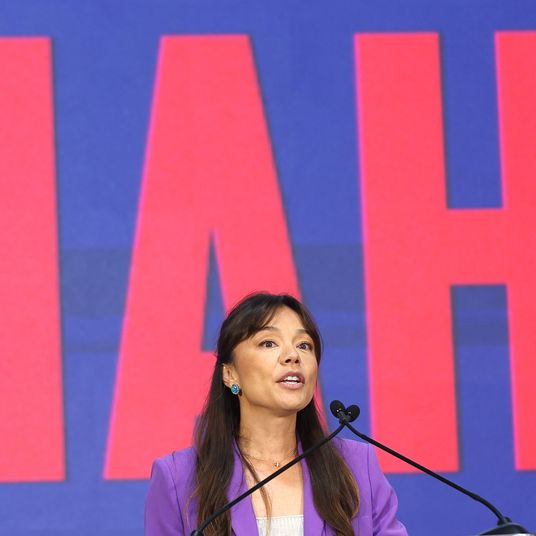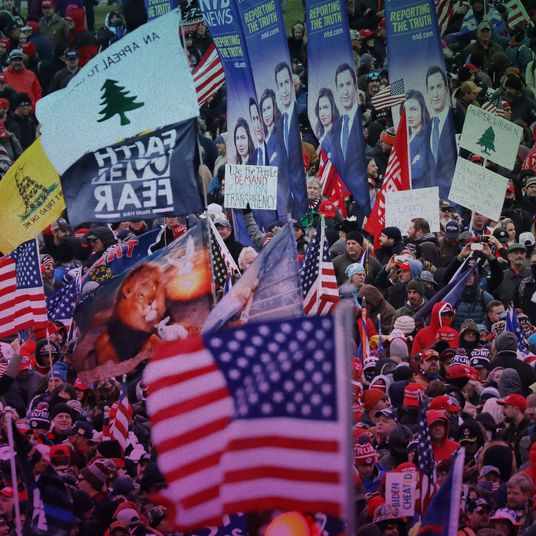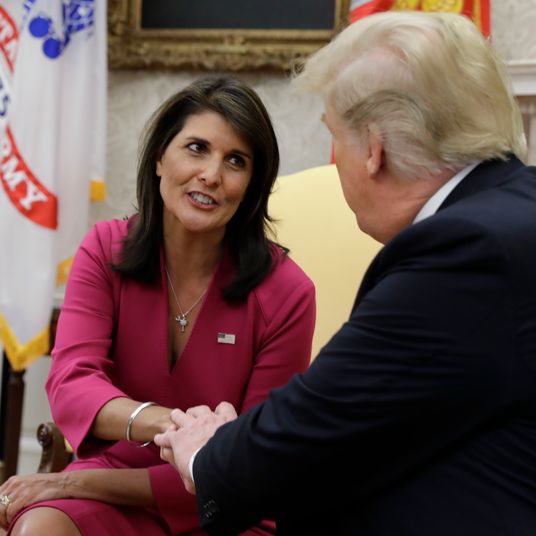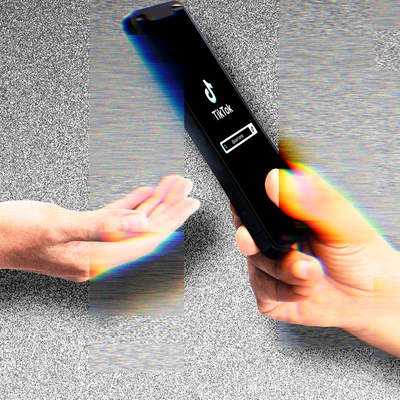
The premise of TikTok has always been deceptively simple. What if you boiled the internet down to just the viral stuff — the weird, fun, outrageous, and compulsively watchable — then made it as easy as possible for everyone to find it? At the heart of it was the prized source code, especially its predictive algorithm, which was good enough to attract 170 million users and convince the average one to spend 100 minutes a day on the app. Given those numbers, the notion that TikTok could influence society was widely accepted as a given. Since ByteDance, its parent company, is based in China, and Beijing has not been shy about exercising its influence over industry, the FBI director calls it a national-security threat. While there are reports about China’s covert control of U.S. operations, and troubling reports that the app has been used to spy on journalists, any hard evidence of mass foreign influence has — to put it charitably — remained out of the public eye. Still, Congress passed a bill banning the app so long as it’s owned by a Chinese company, and Biden signed it into law on April 25.
TikTok itself now is at risk of following the path of a viral clip: After exploding in popularity, it will fade into not much more than a collective memory — at least, within U.S. borders. For American users, it is now a real possibility they will lose their most direct line into the trends, jokes, and dances that have become one of the cultural centers of the internet.
But it will not happen immediately. The bill gives parent company ByteDance about nine months to sell off TikTok, and the company is expected to fight the law in federal court, which could delay the ban by more than a year, even if it fails. The government will likely have to argue that ByteDance’s arguments centering around freedom of speech, as well as unconstitutionally singling them out, are outweighed by national-security concerns, whatever those may be. The outcome is far from certain. But there are four broad scenarios that could play out during the next few years. Experts believe that the ultimate fate of the app in the U.S. is still too early to call, but some scenarios are a bit more likely than others. Here’s what could happen.
Most Likely Scenario: TikTok loses in court and China refuses to sell
Result: You lose access to the app
The law Biden signed on April 24 wasn’t the first attempt in the U.S. to ban TikTok. Last year, Montana banned the app within the state’s borders only for a federal judge to block the new law. Washington lawmakers appear to have learned from Montana’s mistakes and used a different strategy — not outlawing TikTok’s content, but rather forcing a sale of the American business by ByteDance. “The federal law is a much more polished and savvy version of the Montana law, which was ham-fisted and rushed,” said Evelyn Douek, a professor at Stanford Law School. “It’s also true that in matters of national security and foreign relations, courts may give the federal government more deference.” TikTok has about six months to challenge the bill in federal court. Still, analysts believe that the law will likely survive a challenge. “There’s a better than even chance that the government wins this case on national-security grounds,” Paul Gallant, an analyst at investment bank TD Cowen, told me.
China is already telegraphing that it won’t sell, and investors, analysts, and lawyers that I spoke with believe that this is the most likely scenario. For one, sovereignty concerns cut both ways, according to one Washington lobbyist familiar with the bill. “China is itself saying that the core of this app is a national-security issue for them,” the lobbyist said. The Chinese government is also unlikely to care much about the concerns of the foreign investors who stand to lose their entire stake in the company. Larry Albukerk, who runs the private shares market EB Exchange, said that shares of ByteDance are already being offered at a 20 to 30 percent discount.
In that case, the app would disappear from app stores on U.S. phones. Those who have TikTok on their phones already would find the program useless. The billions of videos that have already been uploaded would still be on TikTok’s U.S. servers, which are maintained by Oracle’s cloud services. It’s unclear what would happen with all that data, but if the Chinese government decides not to sell off anything, it is entirely possible that would all get deleted.
China’s insistence that it won’t sell may be a negotiating tactic, but it also lays the groundwork for its biggest competitors to start hoovering up its users. Of course, they have already been pushing into TikTok’s territory for some time now, with both apps introducing their own copycat products — Reels and YouTube Shorts, respectively — since 2020. The new uncertainty around TikTok’s future could convince big U.S. tech companies to offer more incentives for people to post short video on their platforms, in a bid to win over TikTok fans.
The impact of an actual, enforced ban would arguably be largest for those who make their living on the app — including influencers. Many TikTok influencers do not have equally strong presences on other social-media apps. “TikTok has been the hardest platform to strategically move people off of,” said Jacob Wallach, founder and CEO of Social4TheWin, which advises brands on social-media strategy. If companies don’t already have large followings on Instagram and YouTube, they’re likely to start spending large sums to make up for that. “It’s easier to build up a following on TikTok, which means that each follower is a little bit less valuable,” said Danielle Wiley, CEO of Sway Group, an influencer marketing agency. “We’ve had some clients who’ve gone all in on TikTok in the last couple of years and really ignored Instagram. They’re going to have an uphill battle building back up that following on Instagram, and it’s going to take a lot longer.”
A slightly less likely scenario: TikTok loses in court, and China caves and sells — maybe to Walmart
Result: TikTok remains on your phone, but it is more focused on shopping
It’s worth being skeptical of China’s insistence that it won’t ever sell, especially since the ban is hardly a week old. The country may be loathe to use TikTok as a geopolitical bargaining chip, rather than just treat it as another business. Under Xi Jinping, the Chinese Communist Party has restrained any business, executive, or government official whose influence could be seen to rival the government’s power. In this case, the ruling party may decide that TikTok, for all its success, isn’t worth a global tug-of-war.
There are good reasons for China to sell, if the courts force it to. For one, pulling the app entirely may worsen geopolitical tensions between the U.S. and China, causing the world’s two largest economies to pull away from each other, which could cause unprecedented chaos in the global market (and inflict a lot of pain on China). But the other reason is purely business-related. ByteDance is worth more than $200 billion, and TikTok makes up roughly half that valuation. If China is willing simply to take the money, someone will want to buy it.
The dry run for this was back In 2020, when Donald Trump tried to ban TikTok. At the time, Oracle and Walmart were going to take over the company’s U.S. operations, only for the deal to fall apart during the early days of the Biden administration. Even when the deal soured, though, the relationship between ByteDance and Walmart reportedly did not, with executives from both companies quietly meeting last year.
“If Walmart is interested, they’re likely to be a leading bidder, because they would face the least regulatory risk,” Gallant said. In other words, Biden’s Federal Trade Committee likely wouldn’t block Walmart from blocking the deal on antitrust grounds, which may be more likely if a tech or social-media company were to take it over. Walmart also makes some business sense. TikTok has been rapidly trying to reinvent itself as a storefront, even if it has done so by offering vast subsidies to get people to buy worthless junk.
But in this scenario — even if Walmart passes — TikTok will likely transform into something completely different. Other possible investors include former Treasury secretary Steve Mnuchin — who is now investing money on behalf of U.S. and Saudi investors — and Kevin O’Leary, the Shark Tank investor who was once a paid investor for Sam Bankman-Fried’s FTX exchange. The upshot of this is that, if TikTok changes hands, it will be expected to make profits — something it reportedly does not do. That probably means more advertising and more shopping. Walmart (or whoever) could amp up the shopping videos, turning the app into a kind of short-form QVC with some dancing videos threaded through it.
The wild-card scenario: TikTok loses and Trump, in his second term, suspends the ban
Result: You get to continue using TikTok, but with the possibility of a future ban still looming
There is a sense that Washington doesn’t really know what to do with TikTok. Given lawmakers multiple attempts to ban, then un-ban, the app, is it really that hard to imagine the political class warming up to TikTok again?
The reality is that, if their sentiment changes, there is an out for Biden, or any future president. The bill Biden signed into law on Wednesday requires ByteDance to make a “qualified divestiture” of TikTok, or face a fine of $5,000 a day per user — roughly $740 billion a day. But what qualifies as a divestiture? According to the law, it largely comes down to the discretion of the president.
One scenario being kicked around Washington, according to a seasoned lobbyist familiar with the tech industry, is that the wording of the law would give Trump enough wiggle room to unilaterally decide to let it operate, barring a few minor share sales. It’s up to the president to decide that TikTok is “no longer being controlled by a foreign adversary,” but there are few other clear details about what that actually looks like. According to ByteDance’s own data — which hasn’t been independently verified — about 60 percent of TikTok is already owned by investors.
“What clears the bar?” the lobbyist wondered. “What qualifies as, quote, divestiture? I don’t know that that term is really well-defined in financial and technical terms.” In normal business disputes about company control, these matters would be decided by a court. (Elon Musk, who owns about 20 percent of Tesla, was recently found to control his car company, for instance.) In this case, Congress has given the president the power to decide that very question. This could come in handy for Trump donor and major ByteDance investor Jeff Yass, who has apparently persuaded Trump that banning TikTok — a position he tried to ram through in 2019 — is not such a good idea.
A lot has to happen for this scenario to play out, starting with Trump winning the 2024 election, and then deciding to backtrack on his 2020 attempt to ban the app in the first place. If all that happens though, and users would never lose access to the app. But, in this scenario, the law would never be rescinded, meaning that a future president would still retain the power to force a sale.
The long-shot scenario: TikTok prevails in court and nothing changes
Result: You can keep your TikTok app
When the federal government litigates its problems with corporate America, it typically wins. But it’s not a given. Even when it comes to apparent national-security concerns, the Feds don’t always win — for example, the FBI tried this approach against Apple in 2016 over the company’s use of encryption in texting; it didn’t work.
While it isn’t likely, there is a very reality possibility that ByteDance could win after challenging the law. While courts tend to defer to intelligence and law-enforcement agencies when it comes to national-security concerns, it’s not clear what the actual risks to U.S. citizens actually are, and those supposed threats could wither under judicial scrutiny. The law could also fail to pass scrutiny in other ways. It’s on untested First Amendment grounds, given that the government doesn’t have the right to censor foreign propaganda. The wording of the law may also have gone too far: It specifically names the app in the text, and bills designed to punish a single company, called bills of attainder, are unconstitutional. When I reached out to the company’s spokespeople, they remarked on this specifically. “The law Congress passed and the president signed was designed to have a predetermined outcome: a ban on TikTok. Some of the bill’s biggest cheerleaders in Congress have said so repeatedly, and publicly.”
Should this part of the law get struck down, ByteDance would have no reason to sell TikTok. Congress would be forced to rewrite the law, if it still wanted to force a sale of the company. But by that point — years from now, likely — legislators would need to find other compelling reasons to keep Americans from accessing the app. “What happened to TikTok was a unicorn in Washington,” Gallant said. “I can’t say enough how rare it is for Congress to move that quickly on major economic regulation.”






